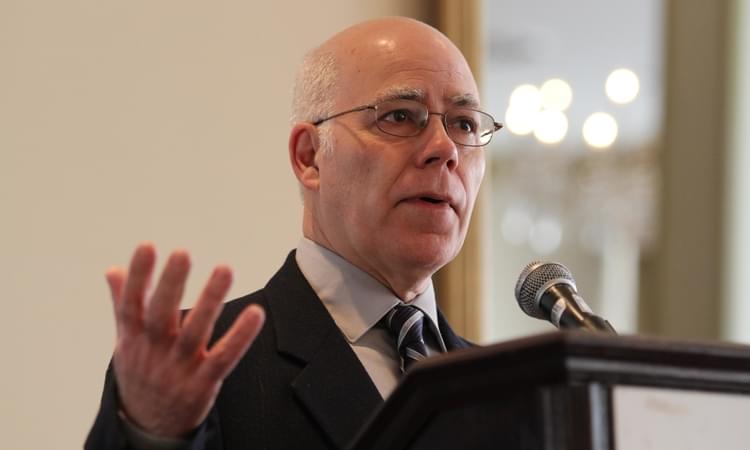Coon calls for property tax reform – Telegraph Journal – 11 November 2017

Author by: BARBARA SIMPSON Telegraph-Journal
Photo by: Photo: Telegraph-Journal Archives
There’s a sense broadly amongst New Brunswickers that the property tax system is not fair and it needs to be reworked to ensure everyone is being treated fairly, and when you look at it from that perspective, you want to say, ‘Is heavy industry being treated fairly with relation to everyone else based on the value of their operations? – David Coon
Green Party leader David Coon has introduced a bill to get the province to scrap machinery and equipment property tax exemptions.
SAINT JOHN • Green Party leader David Coon has introduced a bill to scrap a series of industrial property tax exemptions, marking the first legislative attempt a provincial politician has taken following Saint John’s call for property tax reforms.
“There’s a sense broadly amongst New Brunswickers that the property tax system is not fair and it needs to be reworked to ensure everyone is being treated fairly, and when you look at it from that perspective, you want to say, ‘Is heavy industry being treated fairly with relation to everyone else based on the value of their operations?’” Coon said.
Municipal finance experts Enid Slack and Harry Kitchen recently attempted to answer that decades-old question for the City of Saint John in their tax fairness study. They found that while the city’s property taxes are fair and equitable, that’s based on the limitations placed by provincial tax legislation.
The City of Saint John is currently facing a $4.8-million budget shortfall for 2018. Members of the finance committee have been discussing a $15-million-over-three-year cut to the city’s operating budget in an effort to balance its books.
Coon has now tabled a bill at the New Brunswick legislature to scrap property tax exemptions for heavy industrial machinery and equipment — a move that would help the majority of taxpayers in part by shifting more of the tax burden onto heavy industry.
Close to 40 per cent of city property tax revenue came from residential assessment last year, according to the results of the tax fairness study. The city’s largest taxpayer is Saint John Regional Hospital assessed at $256.2 million, paying $4.5 million in property taxes.
By comparison, the Irving Oil refinery — the city’s next largest taxpayer — is assessed at $98.5 million, paying $2.6 million in property taxes.
Ward 3 Coun. Gerry Lowe has been calling for the taxation of machinery and equipment in the province for heavy industry.
“I’d say there is between $4 and $5 and $6 billion dollars worth of machinery in Saint John, and if we would get some form of taxation, a little bit of taxation, to start with, then we wouldn’t be in the jam we’re in today,” he said.
Irving Oil and J.D. Irving, Limited, are two of the biggest industrial employers in the province.
In an email, J.D. Irving spokesperson Mary Keith said most jurisdictions in Canada don’t allow a broad-based tax on machinery and equipment as it hinders capital investment.
“Putting in place such as a tax, similar to other cost increases for workers compensation, carbon pricing, etc. will negatively impact industry competitiveness,” said Keith, who spoke on behalf of Irving Pulp & Paper, who is the ninth largest taxpayer in the city.
Coon’s bill also calls for the removal of the tax exemption for crude oil storage tanks. While municipal taxes are currently collected on those tanks, provincial taxes aren’t levied on them, according to Service New Brunswick.
Ongoing efforts this week to reach a spokesperson at Irving Oil for comment were unsuccessful.
Premier Brian Gallant has said the province won’t revisit any part of the property tax system that was created to provide equalized services across the province.
Coon said he doesn’t find it “acceptable” that the province won’t discuss property tax reforms.
When asked for comment on Coon’s bill, Finance Department spokesperson Sarah Bustard said in an email, “Out of respect for the procedures and traditions of the Legislative Assembly, government will take the time to review Bill 10 and will present their position during the debates on the floor of the Legislature.”
Lowe said he’s pleased to see Coon take interest in the issue of machinery and equipment taxation.
“I respect David for at least bringing it up and trying to start dialogue on it, which is what has to happen,” he said. “It can’t start from point zero and get to 100 miles an hour on it quick. There has to be a dialogue on it.”